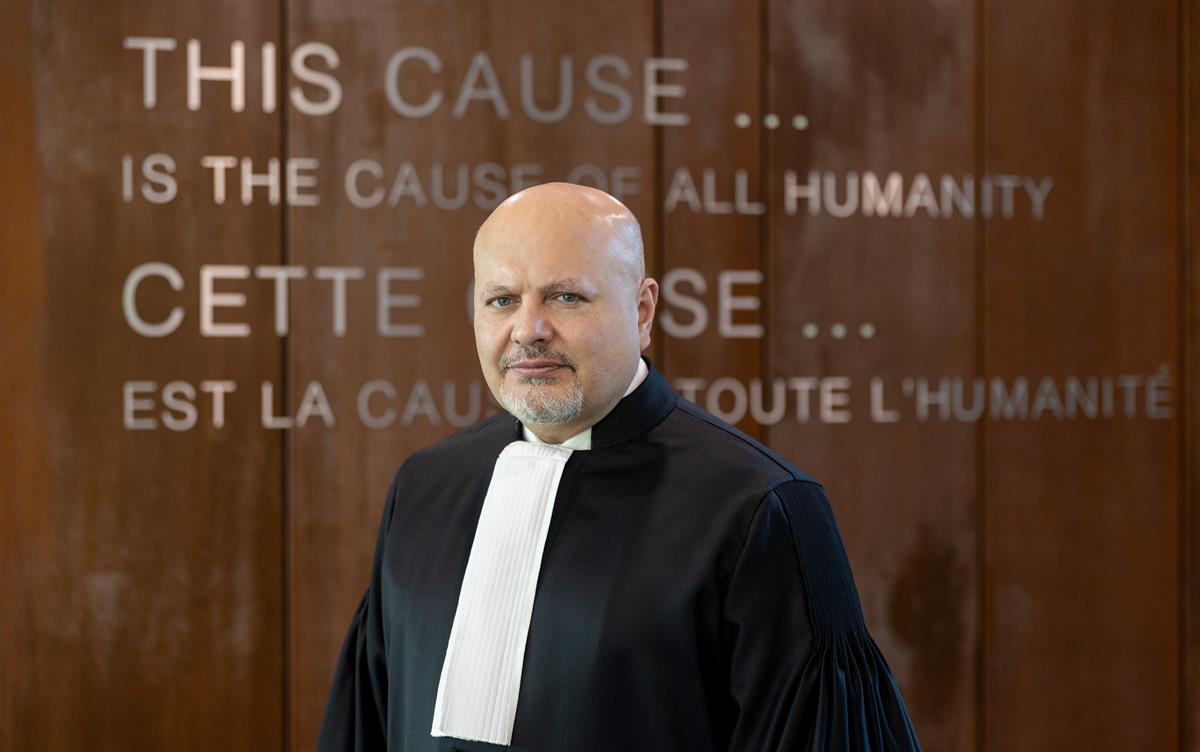ICC asked to issue arrest warrants against Taliban leader and top judge

Karim Khan KC
The International Criminal Court (ICC) has been asked to issue arrest warrants against senior Taliban leaders for the crime against humanity of persecution on gender grounds.
Prosecutor Karim Khan KC has filed applications for warrants of arrest in respect of the Taliban’s “supreme leader”, Haibatullah Akhundzada, and the most senior judge in its regime, Abdul Hakim Haqqani.
“My office has concluded that these two Afghan nationals are criminally responsible for persecuting Afghan girls and women, as well as persons whom the Taliban perceived as not conforming with their ideological expectations of gender identity or expression, and persons whom the Taliban perceived as allies of girls and women,” Mr Khan said.
“This persecution was committed from at least 15 August 2021 until the present day, across the territory of Afghanistan.
“This ongoing persecution entails numerous severe deprivations of victims’ fundamental rights, contrary to international law, including the right to physical integrity and autonomy, to free movement and free expression, to education, to private and family life, and to free assembly.
“These severe deprivations of fundamental rights were also committed in connection with other Rome Statute crimes. Perceived resistance or opposition to the Taliban was, and is, brutally repressed through the commission of crimes including murder, imprisonment, torture, rape and other forms of sexual violence, enforced disappearance, and other inhumane acts.”
He added: “These applications recognise that Afghan women and girls as well as the LGBTQI+ community are facing an unprecedented, unconscionable and ongoing persecution by the Taliban.
“Our action signals that the status quo for women and girls in Afghanistan is not acceptable. Afghan survivors, in particular women and girls, deserve accountability before a court of law.
“My office further submits that the Taliban’s interpretation of Sharia should not, and may not be used to justify the deprivation of fundamental human rights or the related commission of Rome Statute crimes.”
Mr Khan also said these are only the first applications for arrest warrants in Afghanistan and that he intends to file further applications for other senior members of the Taliban “soon”.
Human rights organisations including Amnesty International and Human Rights Watch have welcomed the applications, which will now be considered by the ICC’s Pre-Trial Chamber II.
Agnès Callamard, Amnesty’s secretary-general, said today that the announcement “gives hope, inside and outside the country to Afghan women, girls, as well as those persecuted on the basis of gender identity or expression, such as members of the LGBTQI community”.
“This is a crucial step to hold accountable all those allegedly responsible for the gender-based deprivation of fundamental rights to education, to free movement and free expression, to private and family life, to free assembly, and to physical integrity and autonomy,” she added.
Ms Callamard also urged Mr Khan to “expand his investigations in Afghanistan to include all serious violations from May 2003 onwards” and to reverse his 2021 decision to “deprioritise investigations into war crimes allegedly committed by the US military, CIA personnel, and other international forces who had a presence in the country, and the former government security apparatus”.
“This decision risks contributing to perceptions of a selective approach to international justice which prioritizes the interests of powerful states and their allies over the right to justice of victims of crimes under international law,” she said.
Liz Evenson, international justice director at Human Rights Watch, said: “The ICC prosecutor’s request for arrest warrants against two senior Taliban leaders for the crime against humanity of gender persecution should put the Taliban’s oppression of women, girls, and gender non-conforming people back on the international community’s radar.
“With no justice in sight in Afghanistan, the ICC warrant requests offer an essential pathway for a measure of accountability.”








